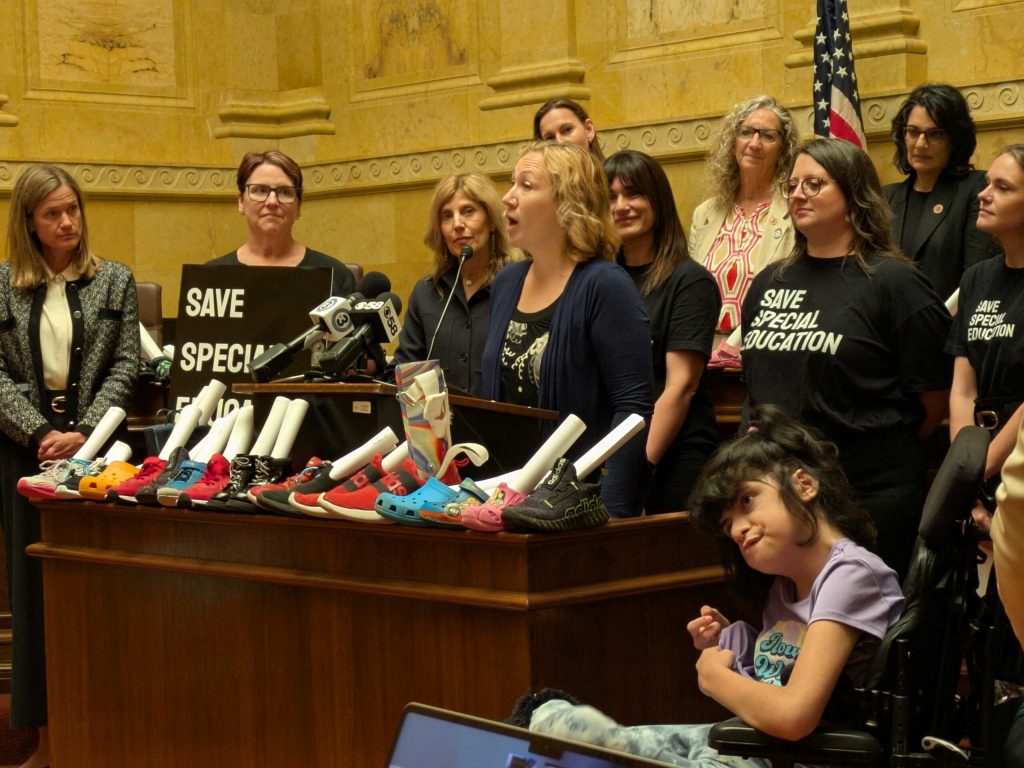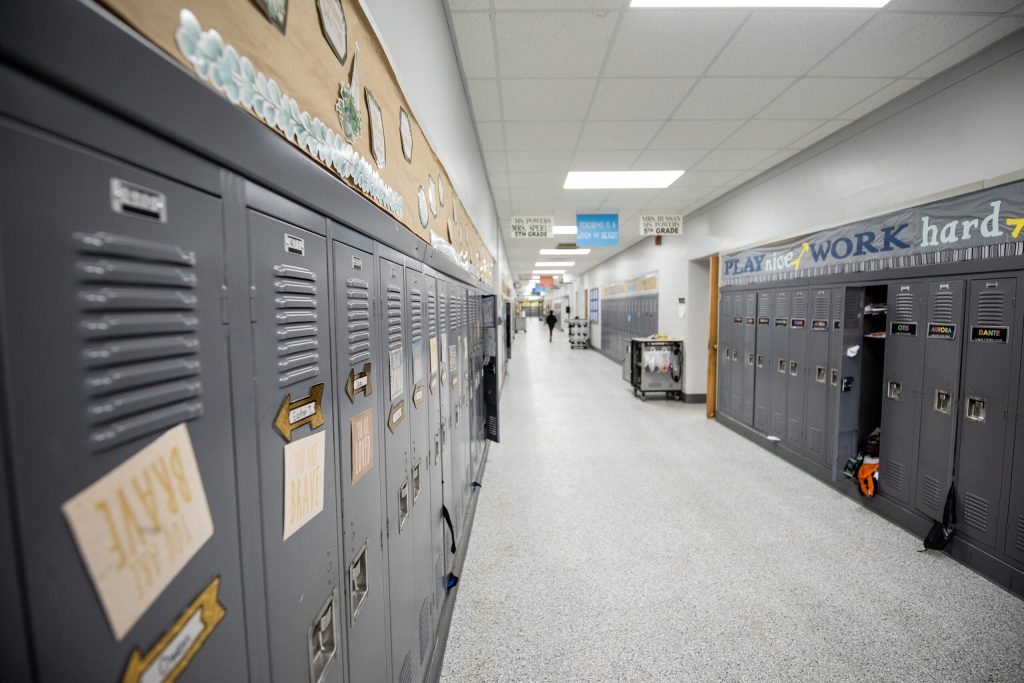Republicans Boost School Funding, But By Far Less Than Governor Proposed
Finance committee also votes for $1.3 billion tax cut.
Republicans who run the Legislature’s budget committee voted Thursday to increase state spending on K-12 schools by $336 million — roughly $3 billion less than what was proposed by Democratic Gov. Tony Evers.
GOP lawmakers also voted to cut income taxes by $1.3 billion, largely by reducing taxes on retirement income and expanding the second lowest tax bracket so that people who earn more money can pay a lower rate.
The debate over the plans in tandem echoed now-familiar themes at the Wisconsin Capitol, with Democrats accusing Republicans of not listening to what voters want when it comes to schools, and Republicans criticizing Democrats for ignoring the public’s ability to pay.
It left the two sides far apart on some of their biggest budget priorities, issues on which Evers and Republicans said they were close to reaching a deal until negotiations fell apart about a week ago.
The GOP education budget not only differs from Evers’ proposal, it’s also a departure from how the state handled school funding increases in the past.
For example, Evers’ plan would have poured the bulk of new funding — $1.2 billion — into general school aids, a pot of money that gets divvied up among school districts across the state to help offset the cost of education borne by local property taxpayers. The Republican plan would spend no new money on general school aids.
Republicans would instead target new funding to specific programs, like $228 million for special education, $55 million for “high cost” special education and $20 million for mental health.
“The budget has to be right-sized to what’s affordable,” said Rep. Mark Born, R-Beaver Dam, one of the cochairs of the Joint Finance Committee. “The governor’s budget is always reckless spending that the state can’t afford. And so we’re choosing to make key investments.”
But some of those investments — particularly the special education funding — fell short of what advocates were asking for. The GOP plan would increase to 37.5 percent the amount the state picks up in special education costs, not the 60 percent sought by parents of special needs students, the benchmark hit in the governor’s budget.
“We all heard what schools want, and we all heard what schools need,” said Rep. Deb Andraca, D-Whitefish Bay. “This is not it.”
While schools have some leeway when it comes to cutting back other expenses, they’re required by law to fund the full cost of special education, which can include services like speech language pathology, physical therapy, school nursing and transportation.
Public school advocates have long argued that because of that requirement, when the state doesn’t spend enough to support students with special needs, local schools are forced to make up the difference by raising local property taxes or cutting other services.
Ahead of the budget committee’s meeting, a group of parents from the Learn in My Shoes campaign shared stories of how that funding tug-of-war has played out in their school districts, with some warning that the services their children need are in short supply.
Annette Fournier of Kenosha said her 13-year-old daughter Maya has a rare genetic disorder, cerebral palsy and other diagnoses, which leave her unable to walk, eat independently, bathe or care for herself in almost any way.

Annette Fournier of Kenosha speaks at a press conference calling for the state to pick up 60 percent of special education costs on June 12, 2025 at the Wisconsin Capitol. Shawn Johnson/WPR
Fournier said the nearest public school can’t care for her daughter, so she takes a 45-minute bus ride to another school where people are trained to care for her. She said she’s thankful for those services but says the school’s support staff is already stretched thin.
“If my school board can’t afford enough support staff, Maya can’t safely attend school,” Fournier said. “If Maya can’t go to school, I can’t work. If I can’t work, how can my family remain independent?”
GOP tax cut focuses on second-lowest income bracket, retirees
The tax cut passed by Republicans in a separate vote Thursday would expand Wisconsin’s second lowest income tax bracket to more people, an overall tax cut of about $640 million.
Right now, an individual’s income between $14,680 to $29,370 is taxed at 4.4 percent by the state. The GOP motion would keep that same rate for income up to $50,480. For married couples, the tax bracket would go from $19,580 to $39,150 right now to an upper end of $67,300.
The Republican motion would also cut taxes on retirement income by nearly $700 million by creating an individual income tax exclusion for the first $24,000 of retirement income. It would apply to people who are at least 67.
Republicans said the retirement tax cut could encourage seniors to live in Wisconsin rather than move somewhere else where their income is taxed less.
“Don’t think that this doesn’t have a direct impact on people making decisions on where they want to spend their final years,” said Sen. Romaine Quinn, R-Birchwood.
Democrats argued the money Republicans spent on tax cuts could go farther elsewhere, particularly in school aid, which reduces property taxes.
“We think that’s a much stronger use of our dollars,” said Rep. Tip McGuire, D-Kenosha.
The budget committee is likely to continue its work next week as Republicans try to pass the budget in the full Legislature by the end of June.
Republicans boost state school funding by $330M — billions less than Gov. Tony Evers proposed was originally published by Wisconsin Public Radio.
If you think stories like this are important, become a member of Urban Milwaukee and help support real, independent journalism. Plus you get some cool added benefits.






















